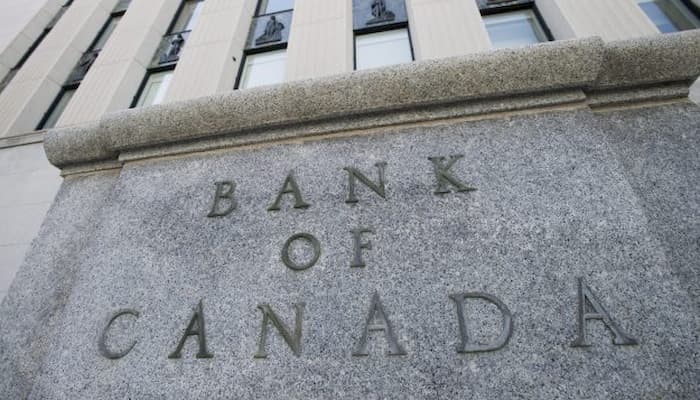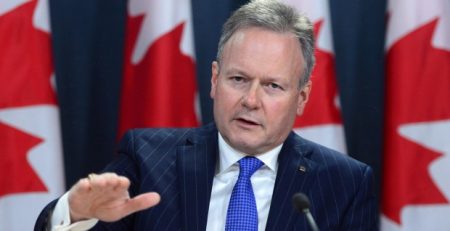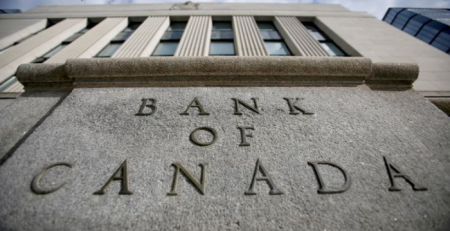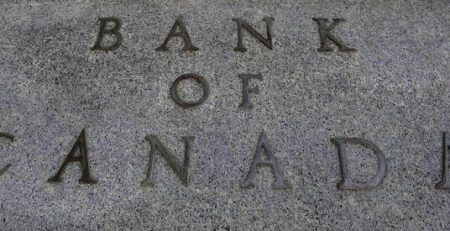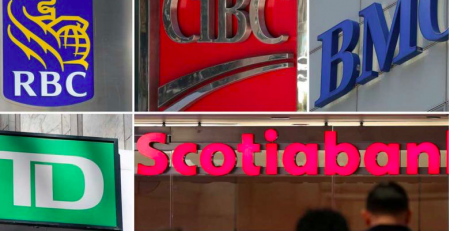Bank of Canada: Negative interest rate, ‘in the toolkit’
Around the world economies are suffering from the effects of the pandemic and central banks have lowered interest rates as one measure to mitigate the effects.
Here in Canada, several reports have indicated that an economic recovery which seemed to be underway in mid summer, has now stalled.
COVID rates are up, especially in Canada’s two most populous and hardest hit provinces, Ontario and Quebec. Each has imposed new restrictions which further hurt the economy, especially businesses related to travel and tourism, hotels, restaurants and bars. Travel and hospitality constitute a major sector in the economy, but most other sectors are hurting as well.
Canada’s previous governor of the central bank had said that interest rates would remain at their historic low of 0.25 per cent set in March, and probably stay there for at least a year, maybe two.
“Never say never”
Yesterday however, in the face of the stumbling economy the recently appointed governor Tiff Macklem, hinted that while there are no plans to do so now, lowering the central bank further may be an option, including negative rates.
In a speech yesterday to a financial risk group, Macklem responded to a question about negative interest rates noting although not in discussion at present, “never say never’ adding it remained in the bank’s options of measures to deal with a faltering economy.
Simply put, negative rate is when instead of earning interest on their funds, commercial banks have to pay to store their excess money. The idea is to encourage them to lend out the money which should help stimulate the economy. However, while a few countries have lowered central rates to negative territory such as Switzerland and Japan for example, not all economists agree that it’s a good policy.
At the speech yesterday, Macklem said that there are still other options for the bank in its toolkit’. That includes additional funding for lending. He also said Canada was hit by the coronavirus already having financial and economic ‘vulnerabilities’ and that the bold policies taken to mitigate economic shock were needed but that “As much as a bold policy response was needed, it will inevitably make the economy and financial system more vulnerable to economic shocks down the road”
He also expressed concern about growing business and household debt and risks of default, adding to a potential financial crisis.
Posted on September 29 the Canadian Bankers Association reported as of April, early inthe pandemic, there were over four and a half million mortgages currently on record, with over 12-thousand in arrears. Lenders had offered six month mortgage deferrals as many Canadians had lost jobs due to forced closings of businesses to limit spread of COVID-19. In july some 775,000 homeowners had requested deferrals.
As deferrals have come to an end, most people have been able to resume payments, in some cases because of various government emergency funding programmes. With the current resurgence of COVID and some newly re-imposed restrictions on certain businesses and travel, the situation may worsen, as the economic recovery stalls. In September, even prior to the recent COVID resurgence, Canada’s housing agency said problems may still come “There continues to be a risk that a significant increase in mortgage delinquency will be observed in the third or fourth quarter of this year as these deferral agreements come to an end”.
The Canadian dollar held relatively steady after Macklems speech, moving up just 0.1 per cent to 75.52 cents against the U.S. dollar.

